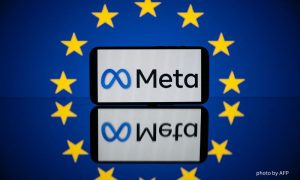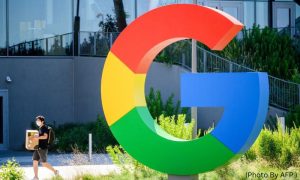STOCKHOLM: The Nobel Prize in Physics was awarded Tuesday to two pioneers in artificial intelligence (AI), John Hopfield and Geoffrey Hinton, for their pioneering work in developing the building blocks of machine learning, a technology that is transforming daily life but also poses significant risks, one of the laureates warned.
Geoffrey Hinton, a dual Canadian-British citizen and professor at the University of Toronto, and John Hopfield, an American professor at Princeton University, were honored for their research that laid the foundation for modern AI systems.
“This year’s two Nobel Laureates in physics have used tools from physics to develop methods that are the foundation of today’s powerful machine learning,” the Nobel committee stated in its press release.
The Royal Swedish Academy of Sciences, which awards the prize, highlighted that Hopfield and Hinton applied fundamental concepts from statistical physics to create artificial neural networks capable of recognizing patterns in vast data sets.
These networks, widely used in facial recognition, language translation, and other AI technologies, have revolutionized various industries.
Hinton, widely regarded as the “Godfather of AI,” played a pivotal role in advancing neural networks by developing a technique known as backpropagation, which helps machines learn from data.
His work in the 1980s and subsequent achievements at the University of Toronto, including a major win at the 2012 ImageNet competition, spurred the rapid development of modern AI technologies.
In a conversation with reporters, Hinton predicted that AI will have a “huge influence” on society, akin to the Industrial Revolution, but he also cautioned about the potential dangers.
“We have no experience of what it’s like to have things smarter than us. And it’s going to be wonderful in many respects, but we also have to worry about the threat of these things getting out of control,” he said.
The Nobel committee acknowledged both the immense benefits and potential threats AI presents to humanity, with Ellen Moons, a member of the committee, stressing the importance of ensuring AI is used ethically and safely for the good of humankind.
Hinton, who recently left Google to speak more freely about AI’s risks, expressed his surprise at receiving the prestigious award. “I’m flabbergasted. I had no idea this would happen,” he told the committee.
Hopfield, now 91, contributed to the field by creating associative memories that could store and reconstruct images and patterns in data, laying the groundwork for Hinton’s later developments. His associative memory models remain influential in AI research.
The Nobel Prize in Physics, which carries a cash prize of 11 million Swedish kronor (around $1 million), will be presented to the laureates at the official Nobel Prize ceremony on December 10, the anniversary of Alfred Nobel’s death.

























